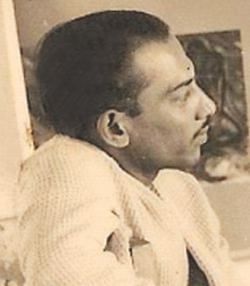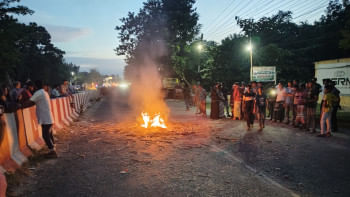Homage to MUBINUL AZIM

November 1 marks the 38th death anniversary of renowned painter Mubinul Azim, regarded as a pioneer in Bangladeshi art. Along with his contemporaries, he made a great contribution in the sphere of experimental paintings. Some of them mingle local motifs and western forms.
Azim was a socially aware painter. In 1952, he was involved in the Language Movement. At that time, he was a second year student at the Dacca Art College (at present Faculty of Fine arts, University of Dhaka). He had organised a meeting in protest of the firing on the rally on February 21. He produced many posters and paintings on the Language Movement during that period.
Azim died in 1975, at the peak of his artistic career. He produced many paintings, water colours and sketches in the course of his rather short career. He graduated in Fine Arts from Dacca College of Arts and Crafts (at present Faculty of Fine Arts, Dhaka University) in 1955. A hardworking and reflective introvert, Azim spent a significant part of his career in Karachi, Pakistan -- a hub for artists, poets, writers and novelists at the time. Besides immersing himself in painting, Azim taught at an art institute in Karachi. He returned to Dhaka for good after the Liberation War and devoted himself to painting.
Azim set out as a naturist and figurative painter. In the early stages of his career, nature was the focus of his works. Along with natural elements, colour was a predominant aspect of his works. The treatment of colour and the composition was exceptional. An interaction between use of space and objects always carried an aesthetic trademark in his works. During a certain phase of his career, Azim focused on boats. The interplay of darkness and light was another significant characteristic of his works.
Azim took part in 37 group art exhibitions. He held 17 solo exhibitions in the country and abroad. After his death, two exhibitions of his works were held at Dhaka Club (in 1976) and Bangladesh Shilpakala Academy (in 1998).
In 2012, the painter was posthumously awarded Ekushey Padak for his outstanding contribution to Bangladeshi art.

 For all latest news, follow The Daily Star's Google News channel.
For all latest news, follow The Daily Star's Google News channel. 



Comments